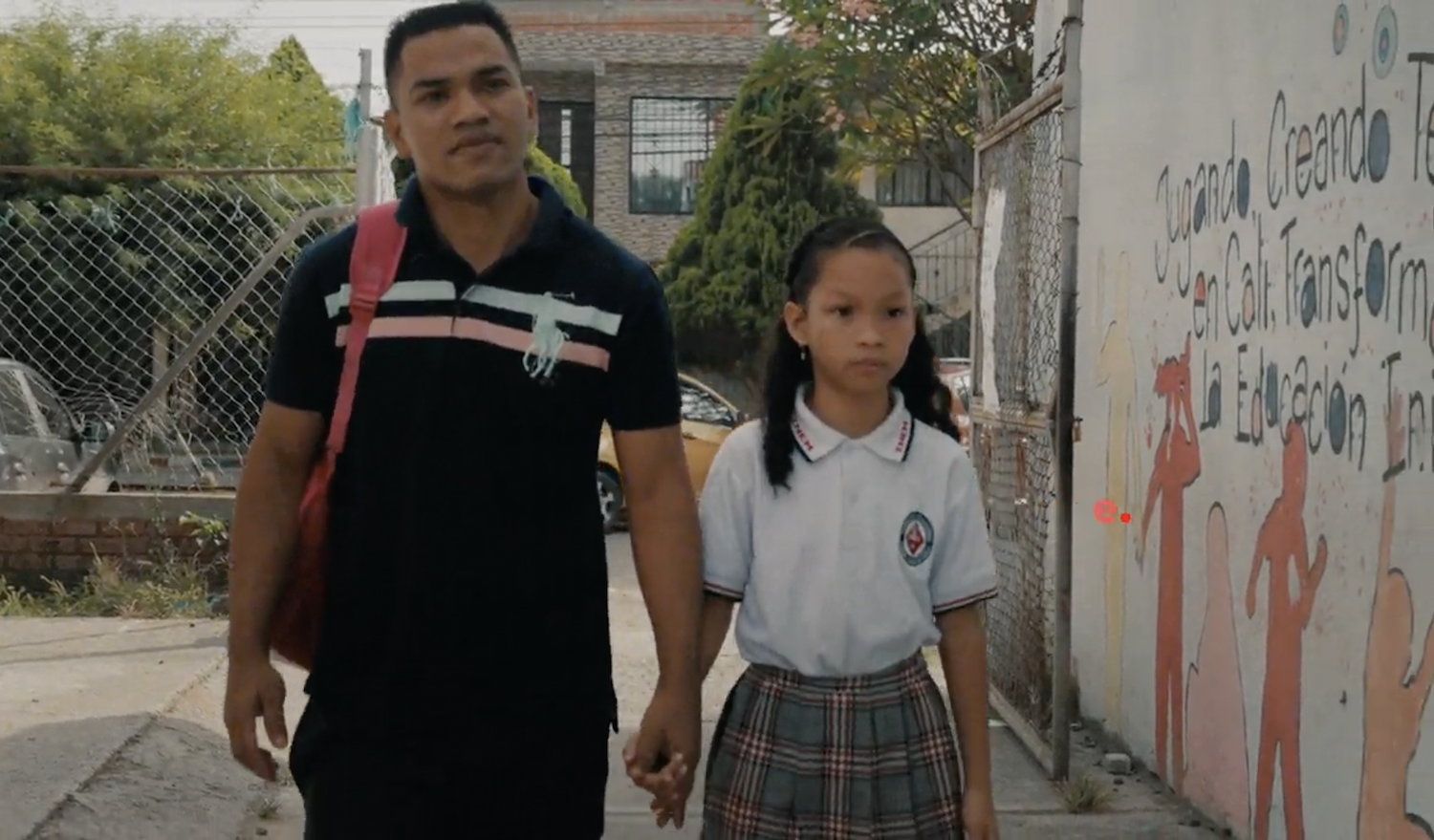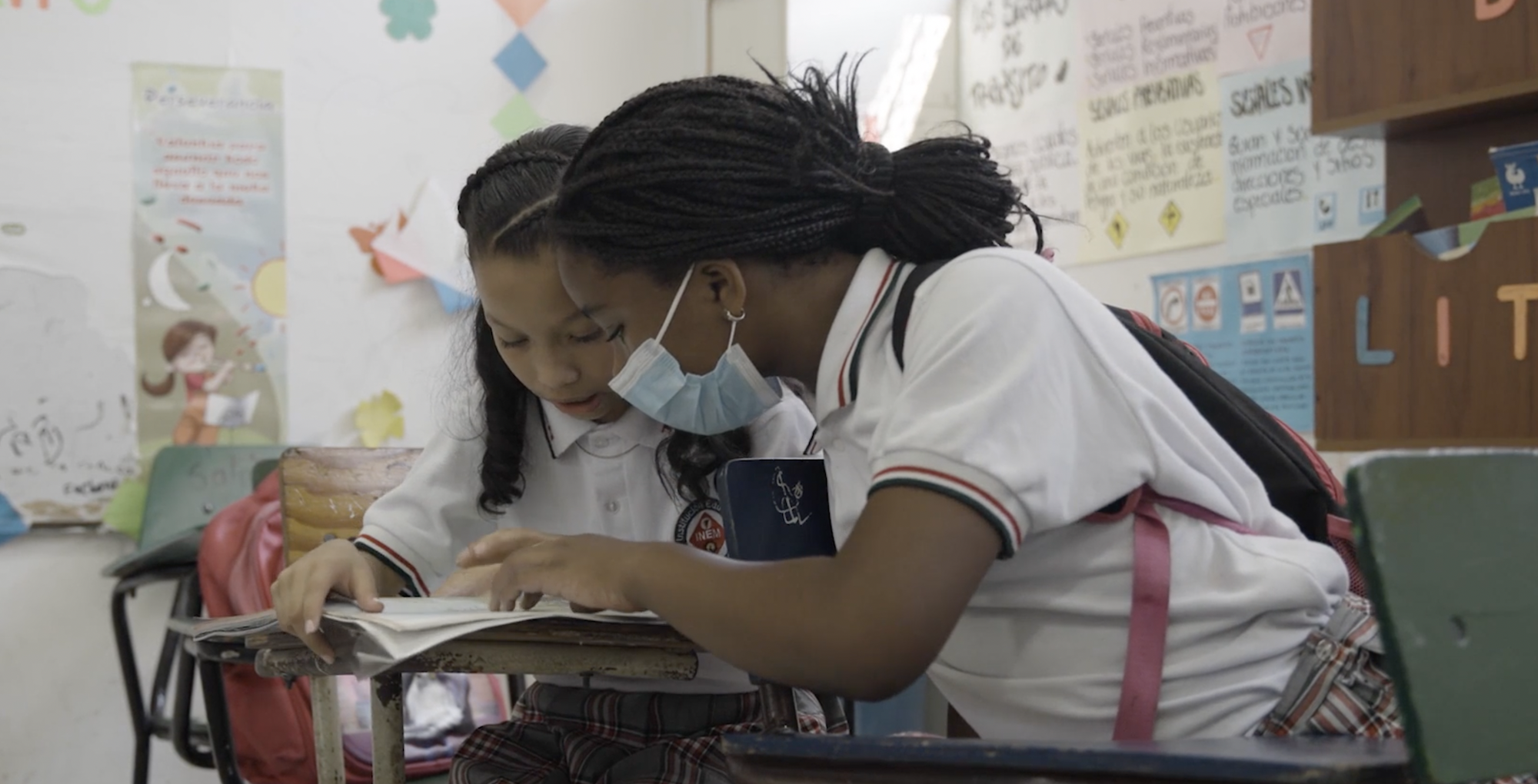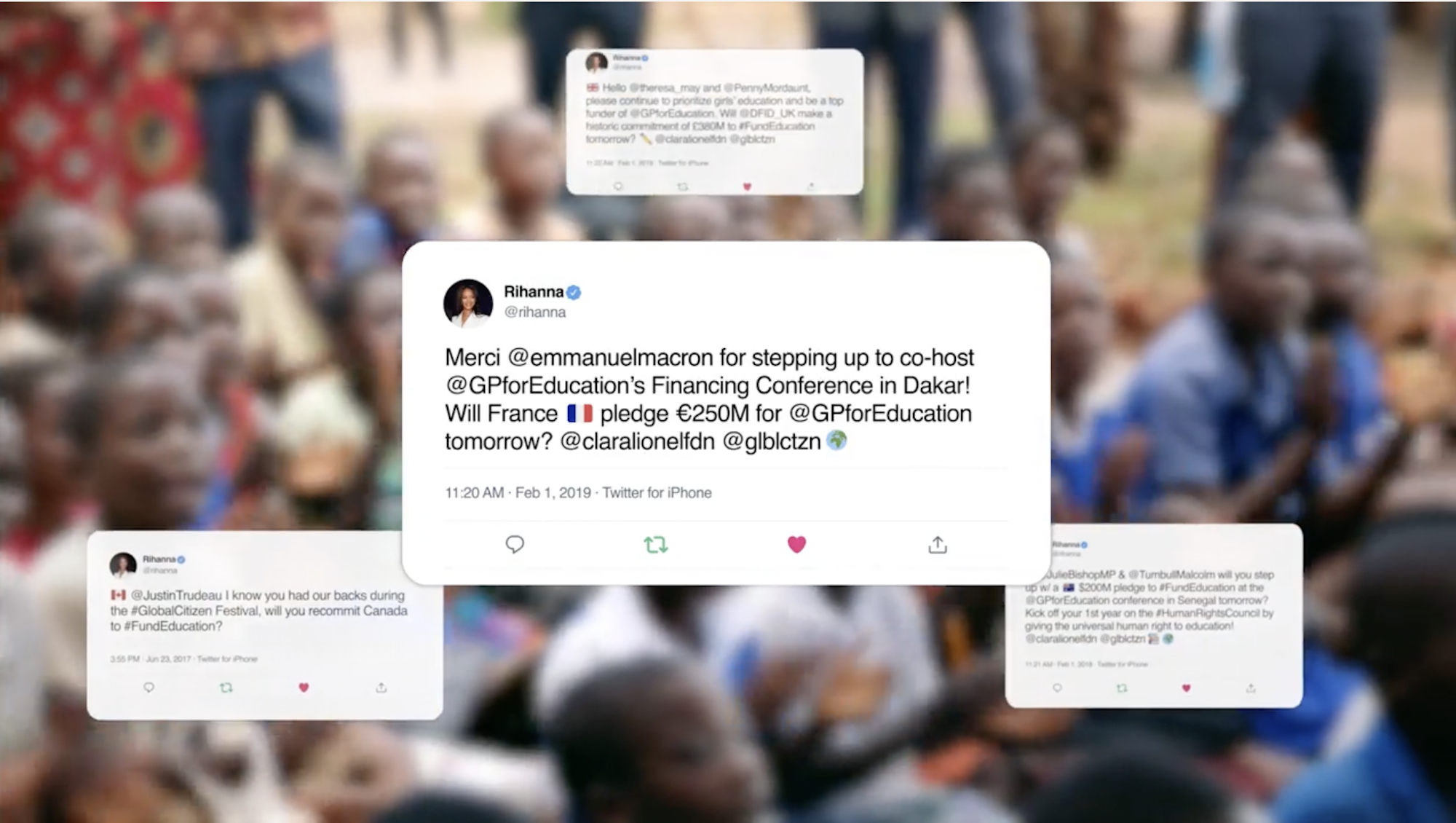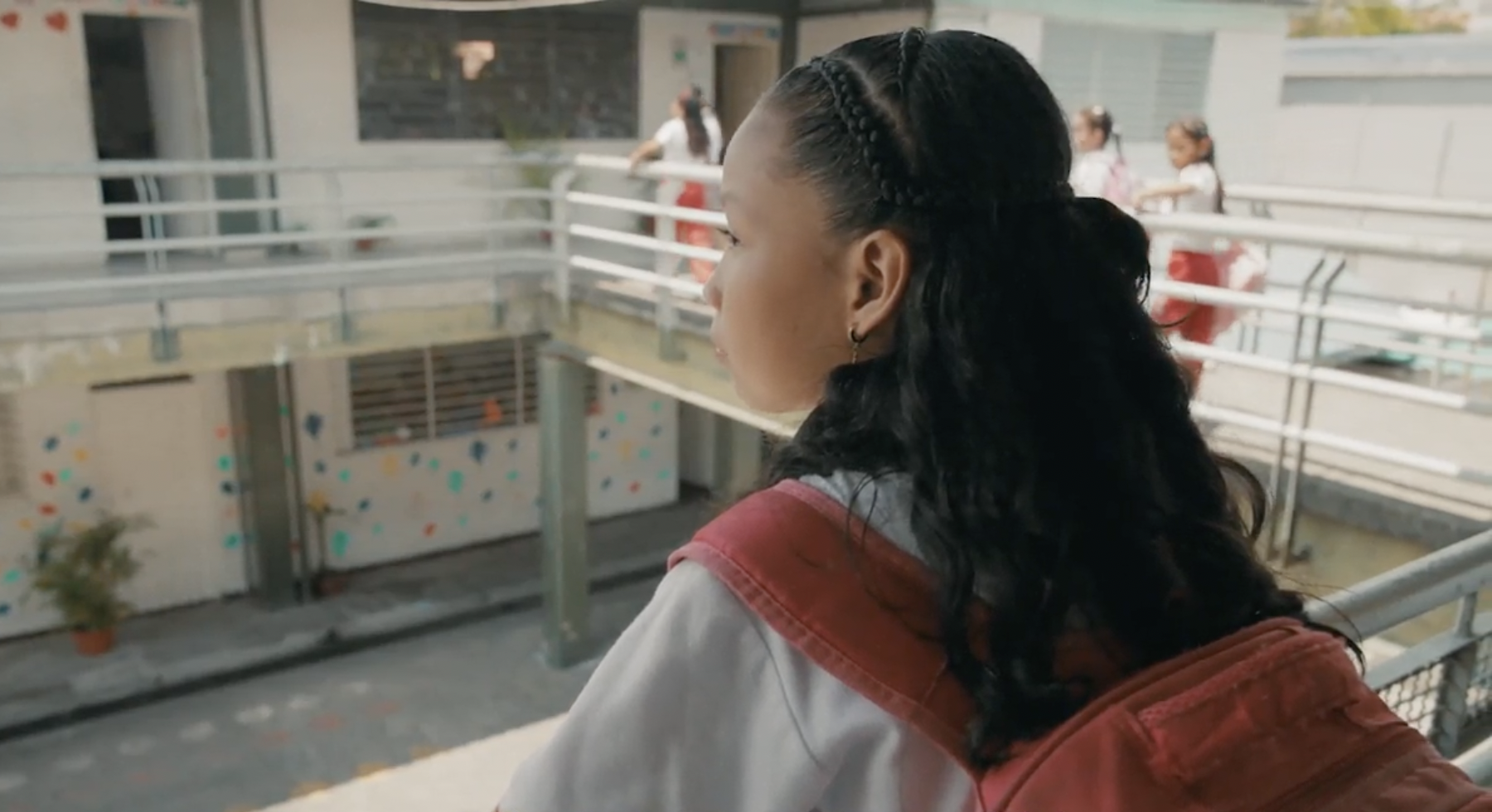When everything around her seemed uncertain, education provided a sense of normalcy and stability for young refugee Camila, who found a new home in the Colombian city of Cali after fleeing Venezuela with her family.
"I remember the trip was long. We got on a boat, and that's how we arrived from Venezuela," Camila told Global Citizen in August. "The first few days [after] we arrived, it was difficult to meet other kids."
Humanitarian emergencies around the world are keeping millions of children like Camila out of school every day. And when staying isn't an option, and the family decides to flee, child refugees risk separation from the safety of their families at every step of the journey.
 At the height of the crisis, Camila and her two siblings traveled with her father and grandmother from the Northeastern state of Anzoátegui, searching for work and school in Colombia.
At the height of the crisis, Camila and her two siblings traveled with her father and grandmother from the Northeastern state of Anzoátegui, searching for work and school in Colombia.
Close to 2.5 million Venezuelan citizens — including over 320,000 school-age children — are now living in neighboring Colombia, the world’s second largest host country after Syria.
"I decided to come to Colombia for a better future, and a better future for my children," Camila's father, who chose not to be named, told Global Citizen in August. "Things were not easy in Venezuela, you were not just worried about the economic issues; you were worried about your children's school situation."
A decade of political turmoil under the governments of Hugo Chávez and Nicolás Maduro has driven Venezuela to "economic war," marked by shortages of everyday goods and medical services, rising inflation, crime, and political insecurity.
Upwards of 3,000 people are still leaving Venezuela every day, joining the 7.1 million individuals who have fled the country since the humanitarian crisis began.
At the height of the crisis, Camila and her two siblings traveled with her father and grandmother from the Northeastern state of Anzoátegui, searching for work and school in Colombia.
"In Venezuela, many teachers stopped working, looking for another source of income," said Camila's father. "[The] few who stayed had to do magic to provide a better education for the children."
Now she’s in Cali, Camila’s days are filled with math, science, and friends, spending her time in school and an extracurricular learning program provided by Fundación de Chile, to help her catch up on missed classes.
"I was getting better grades, and I felt I was behind because I wrote slowly — that's why I entered the [extracurricular learning] program," said Camila.
 These actions have helped millions access education, like Camila, a young student who fled Venezuela for Colombia.
These actions have helped millions access education, like Camila, a young student who fled Venezuela for Colombia.
Fundación de Chile and Camila's school receives support from humanitarian organizations, Save the Children, UNICEF, and Global Citizen partner, Education Cannot Wait (ECW) — a global fund established in 2016 by the United Nations to address the global education crisis.
Since 2012, Global Citizens have taken 1.88 million actions to help ensure education for all children. Thanks in part to those efforts, more than $5 billion has been committed to organizations like ECW and the Global Partnership for Education (GPE) to help children like Camila access schooling and education resources.
Early reports show that ECW's COVID-19 first emergency responses reached about 30 million children across 34 crisis-affected nations, alongside UNICEF, helping millions of children stay up to date with school. Today, the organization has helped more than 6.9 million children living in crisis to access education — including 2.1 million who live as refugees.
"We are tremendously grateful and proud of Global Citizen's efforts and strength in prioritizing girls' education," ECW Director Yasmine Sherif told Global Citizen. "Girls are usually the ones left furthest behind, and if they don't get to go to school, they will be married and have three or four kids by the time they turn 16, so you have to empower her."
Sherif has graced the stages of many Global Citizen Festivals and has worked on the front lines of education in some of the most crisis-affected areas of the world, including Afghanistan, the Democratic Republic of Congo, and Sudan.
 Organizations like Education Cannot Wait & Save the Children are helping millions of children around the world access education in crisis, thanks to the actions of Global Citizens.
Organizations like Education Cannot Wait & Save the Children are helping millions of children around the world access education in crisis, thanks to the actions of Global Citizens.
In 2022, ECW released a report revealing that the number of crisis-impacted school-aged children requiring educational support has grown from an estimated 75 million in 2016 to 222 million today. In February, the organization will host a replenishment conference to mobilize urgent funding for 2023 to 2026, to support education in 40 crisis-affected countries where 80% of the world's out-of-school children live.
"It is important to provide quality education to our migrant children from Venezuela," Solangellie Arango, Camila's teacher, told Global Citizen. "Education builds a country, it transforms realities, society, [and] transforms what they left behind in Venezuela — and when this happens, we contribute to peace."
Funding will enable programs like Camila's school in Cali to continue their work, as well as financing for new temporary schools, educational programs, and scholarships for children in refugee camps and settlements around the world.
"I like going to school because I can make more friends, learn more, and see things that I have never seen before," said Camila. "I want to be a doctor to help people." And for Camila's father, seeing his children thrive is his "driving force every day."
 At the height of the crisis, Camila and her two siblings traveled with her father and grandmother from the Northeastern state of Anzoátegui, searching for work and school in Colombia.
At the height of the crisis, Camila and her two siblings traveled with her father and grandmother from the Northeastern state of Anzoátegui, searching for work and school in Colombia.
Access to education is a right for every child. But 222 million children's dreams are on hold due to preventable factors like the climate crisis, war, and conflict. Your actions are helping change that — start taking action today by downloading the Global Citizen app or heading to our website to take action.